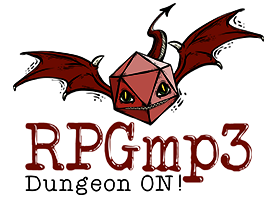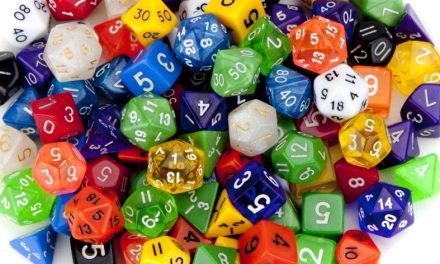To date two of my favourite sessions that I think I’ll combine into one entry.
Worldbreakers: Episode 4
The rattling at the doors continues as the heroes try to decide what to do with their new kobold worshippers. Raine insists that this is too good an opportunity to pass up; not just because he likes the idea of utterly devoted followers willing to die for him who are also utterly expendable but because he feels a strange attachment to the little bipedal vermin. Magnus thinks they’re funny and just wants to see what they’ll do. Jareb, however, is concerned as to the implications of this for he knows more about the magic in Eberron called Faith.
Eberron is a magically rich world with more than one way to call upon unbelievable powers. The most prevalent are the arcane arts as nearly everyone has some small magical talent and access to arcane spells is often a matter of simply knowing the proper ingredients and procedures. It can be taught even from a book. There are also innate magics like Magnus’ elemental powers that come from within. There are natural magics like Raine uses to tap into the flow of life energy and bring out a being’s true potential. But faith? Faith is different.
You can be taught religion, much like arcana, but that does not mean you can do it. You can have great stores of energy but that does not mean you can put them to use. Faith is a measure of an intangible element of a being’s soul. It can be shaken, it can be lost, it can be forgotten, or it can be stronger and more defining a feature than is possible to put into words. Its powers are as wide and as varied as the individuals who use them. All it takes is for someone to believe strongly enough. The people of Eberron do not know their gods. They have them, a wide pantheon of them in fact, but the gods do not make appearances on this plane and there are a great number of people who theorize that the gods might not even exist. Another theory is that the gods may very well exist because people believe in them. Regardless of whether they exist or not, the one undeniable fact is that the magic of Faith does exist and should not be taken lightly by mortals.
While Jareb is lost in thought Magnus ponders aloud at how it seems unfair that the Treaty signed but two years ago gives rights and privileges to nearly every demihuman race yet it excludes kobolds. Raine’s fur stands on end as he rankles at this injustice and he swears to the kobolds that their gods will find them a new home where they can build and become part of civilization. The kobolds cheer and fornicate wildly. Jareb puts his head in his hands and sighs.
Then one of the doors bursts open and combat is once again joined. The battle spills out onto the balcony where the party are beset by one of the goblin’s greatest trump cards: a trio of enormous spiders. While Magnus, Jareb, Garradur, and Biskik fight two of them off, throwing the leaking exoskeletons over the side, Raine stares the third one down. It is a battle of wills: Feline vs Arachnid, and the druid’s mind proves stronger. He sits back on his haunches quite proud of himself at having tamed the spider. The rest of the party joins him and Jareb asks what he intends to do with a giant spider.
“Ride it!” he declares.
It is pointed out to him that he and the spider are the same size and this would simply not work.
“Oh,” he whines dejectedly. “Fine. Hey, let’s give it to Biskik!”
Biskik claps for joy and marvels again at the generosity of his new gods. He and Magnus fashion a saddle from the armour of fallen goblins – a saddle that would let him stay seated even if the spider were to be upside down – and he nimbly vaults onto the back of his new mount which he names “Buttah.”
The party continues up the tower testing out the new tactic of having a very stealthy spider hanging from the ceiling while its rider shoots crossbow bolts at enemies until they reach what is obviously a very important floor. There are small chambers off to the side but most of the floor space is behind a massive open door though which is a bedroom more decadent than any the party has ever seen. It is decorated with rich tapestries and stained glass windows. There is a small throne in the middle of the room but it is dwarfed by the enormous 4-poster bed behind it. In the throne, being attended by a couple of goblin servants, is a tiefling with handsome, swept back horns, a dashing goatee, and rich clothes. He looks up as the party gathers menacingly at his door.
“Ah, you have made it. I must say that was most entertaining watching you slay my minions. I take it you’re here for the oracle?”
The party moves to attack and head off his monologue but he persists in conversing and introduces himself as Thyre. He bears them no ill will since he himself hates goblins but has found they make useful slaves when provided the proper motivation and are stupid enough for him to manipulate. He tells the party that he too sought the oracle but has come across an obstacle he and his pathetic minions cannot overcome. At the top of the tower there is a guardian who attacks anyone approaching the Oracle’s Chamber. Thyre is a merchant, not a warrior, and every goblin he sends up is simply slain. He offers the party a deal: eliminate the guardian in exchange for a magical treasure he has stored on the floor above his chambers. The party agrees.
Stupidly.
Filled with renewed vigor as they ascend one more floor, proud that they are nearly at their goal and will be handsomely rewarded as well, they enter the room where Thyre told them the treasure was stored and immediately know something is wrong. It appears to be a magical workshop that has not been used in some time. There are no windows and it is very dark, the glow from Jareb sending spooky shadows of spiderwebs across the walls. Raine sees the box Thyre told them about sitting on the counter and paws it open. From the box echoes ominous music as smoke billows out and coalesces into an enormous, blue-skinned humanoid carrying a massive blade. The being attacks the party who scramble to form some kind of defense but his blade cuts very deep and it’s everything Garradur can do to keep the party alive. Raine and Biskik find their daggers and claws have little effect on its ethereal body and even Jareb and Magnus’ magical attacks barely seem to phase it. Things are looking grim until a last ditch effort by the entire team manages to force the djinn back into its box. The party collapses and recovers from the ordeal with only one topic of discussion: Thyre is a dick.
A few hours later a fully healed and hopping mad party descends on the master bedroom. Garradur gives the door the ol’ Ironfoot and it bursts open to see a very surprised Thyre yawning in bed. Before he can react Biskik’s spider scurries across the ceiling and tears through the cloth ceiling of the bed while Biskik stabs forward with his magical poisoned dagger. Magnus teleports directly to the foot of the bed and with an overhead chop slashes a huge gash in Thyre’s legs. Jareb lunges forward with a glowing spear which cuts another wound across Thyre’s back as he tries to scramble away. Garradur throws his hammer and hits Magnus in the back of the head. He offers an embarrased apology and while the party is distracted by this Thyre vanishes.
A stained glass window bursts outwards as something invisible crashes through it and one of the goblin manservants cries “Master, don’t leave me!” before he too leaps through it, only to discover his master is not there to catch him and that he cannot fly. The other goblin blubbers and cries as he takes a dagger out and slits his own throat. The party is left standing in an empty room with no treasure and only one thought still on their mind: Thyre is a dick!
Their progress unimpeded now the group scales the last steps to the top of the tower’s roof. Coming out into the open their breath is taken away as they realize how high they truly are. The countryside of Breland with its rolling fields and forest stretches impossibly far below them. On the roof with them is the spire, a taller still slender needle with a small door open and inviting them to meet the long-sought oracle for which they killed and bled to see but standing guard in front of the door are three statues. It appears Thyre’s words of a guardian were not all lies.
Garradur being an artificer recognizes the statues for what they are: Warforged, the artificial lifeforms created through powerful, lost magics in Cyre before its destruction and used for everything from labourers to warriors. This is curious, though, for warforged were created only a few decades ago which means the last time the oracle appeared a hundred years ago she would not have had these guardians. The lead statue raises his head as they approach.
“Halt,” it says. “I was told to wait for those who are worthy. If you wish to speak to the Oracle you must prove yourselves in combat.”
Tired of all the delays the party wastes no time talking and leaps into battle. The warforged trio prove to be highly trained and very competent at teamwork while the party engage in their usual chaotic mob tactics. Eventually, the warforged are defeated and the leader kneels and surrenders.
“I am Alpha-One, first of my kind. Sent here by my master to ensure those who are not worthy cannot win the war with her prophecies.”
His immobile face cannot match the emotion in his voice after he learns the war is over.
“Then I have no purpose. Please, then I have but one request. Allow me to enter the Oracle’s chamber as well. She will answer one question per person so it will not cost you anything. I would ask her what I am to do now that I have no master and no home.”
The party agrees and one by one everyone enters the Oracle’s chamber. The spire looks no more than a few meters across but inside is a much larger space filled with soothing pink mists and a smiling woman dressed in flowing white robes. There is no door when the party members look for one. She addresses each by name and asks what question they would have her answer.
Jareb: “How can I best bring light to this land that does not know it lives in shadow?” “The kobolds are the key. Show them to the light and they will walk in it and spread that light through the darkness.”
Raine: “What does this Dragonmark mean?” “The hands of fate have marked you for a great destiny. If you wish to embrace it you will become more powerful than you can imagine and Khorvaire will be ever altered by your actions and those of your companions.
Magnus: “Where can I find my father?” “You seek your father but he is not what you truly seek. You will find him when you are honest about what you truly desire.”
Garradur: “Will I be buried with my ancestors?” “Your bones will not lie in the mountains of your birth as long as you stay with your current companions but theirs will if you do not.”
Alpha-One: “What is my purpose?” “You have been given the chance to determine that yourself. No one controls you now and your purpose is to decide who you want to be.”
Biskik: “What can Biskik do to serve awesome, mighty, gods the bestest?” “Your gods need worshippers. Find your kin and spread the word of your gods. Look to the North.”
Their heads filled with even more questions than they had before the party descends the tower, resting after a short but busy and confusing day. No one shares what the oracle told them and the only conversation is about where they will go next. Even Raine grudgingly admitted that Lily had been true to her side of the bargain and that they should go help her with the investigation into the missing villagers. Alpha-One asks if it would be alright if he accompanied them for he feels defending helpless villagers fits with the person he wants to be and the party agrees. Resolved to head out the next morning the party drifts to sleep.
So many notes about this session.
Thyre was my first custom made monster in 4E. I built him specifically to be a tougher than average Stalker character built around gaining combat advantage either through a recharging stealth power or a mobility power that I forget the exact mechanics of. He and his goblins – which were also beefed up to be a wall the PCs would have to get through – had ridiculously high initiative stats because I knew they would need to go early in the fight to get set up. I just didn’t know when that fight would be, exactly. I was also at this point committing to a longer, homebrew campaign that I had started writing because this was obviously going to continue past the end of this prewritten adventure and Thyre was going to be a recurring villain so I built him with another teleport power meant to be used for an escape and a ring of flight.
I was shocked when the PCs were so trusting of this guy who I was clearly playing as a giant dick. He was sneering, condescending, and obviously hiding something even though they couldn’t tell what. They even tried to sense motive him and though he wasn’t lying that there was a guardian they still worried he wasn’t telling the whole truth, which he wasn’t, but hey, let’s do what the asshole says we should!
I don’t remember if the djinn was from the prewritten book or not. I just know he kicked their asses and provided a great mood and dislike for Thyre. The fight with my awesome, custom-built, villain didn’t go nearly how I expected it, however, when I rolled a 1 on the initiative and everyone else did not. Thyre had 120 HP and before he could act the party did 119 damage. If Garradur hadn’t crit failed and pegged Magnus Thyre would have died before he got out of bed! So he immediately used all of his stealth and mobility powers to leap out of the window. To this day I wonder if this may have been even more effective because it set him up not so much as a dangerous threat himself but instead focused more on his conniving plans and plots. Thyre does come back, more than the players realize, to make numerous attempts on their lives.
The oracle was very ham-handed, I will admit. It was little more than a blatant and obvious statement that the game would continue for most of the characters. In my defense, however, I didn’t know what questions the players would ask. I assumed it would be relating to their backstories or future arcs but I had to improvise most on the spot. I think I did okay at toeing the line most oracles do of kind of giving a direction without really explaining anything the players didn’t already know.
Then we come to Alpha-One. Alpha-One was the first new character built around an experiment I wanted to try. My group and I can sometimes get bored and with all the shiny character building options in 4E we all had ideas for other characters we wanted to play. So I decided to see how a stable of characters would work. Every player would be allowed 2 characters instead of 1. They could only play one at a time, however, and would choose which to bring as long as they had access to the hub. Sometimes this would mean they could trade every session or not for many sessions on end. I would also make suggestions if a character was going to have a particularly important moment because it was at this point I was also deciding to build the game and campaign around the character’s arcs and see how they interacted with my main plot rather than focus on the plot and hope they followed it.
Alpha-One was Jareb’s player’s second character. Between this and the next session a new book would come out, he and I would have a conversation about how I was struggling with 2 DMPCs, and he would make a third character to help me out though it would force him to drop one of his existing ones (I was very firm about no more than 2 characters). This would not even be the last character he made. Eventually I had to tell him to stop because I kept having to rewrite everything whenever he switched.
Next session the party makes a new friend, Tom does a silly amount of map drawing, and there is an exciting action sequence where someone dies!
…or do they?




